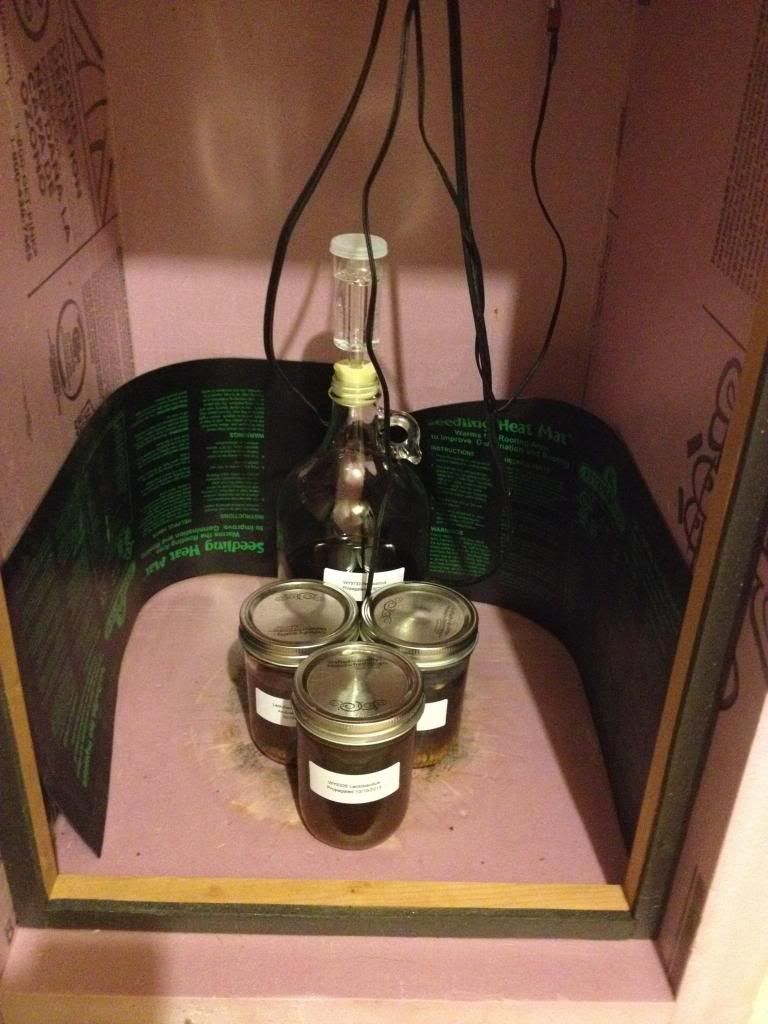philiphirz
Member
It seems that there is a lot of discussion in the sour beer community on lactobacillus and specifically the strains sold by White Labs and Wyeast. Many people report lackluster results in trying to use these strains on their own to produce styles such as berliner weisse, claiming that there just isn't enough sourness produced by some of these pure lacto cultures. In addition, many people make claims that if you get into the neighborhood of ~8-10 IBUs that lacto is basically useless since it is a gram positive bacteria. On the other hand many people seem to praise pedio due to its high souring potential and its relatively high tolerance to IBUs and alcohol levels. Obviously pedio has some issues with ropiness and diacetyl but these issues can be overcome by pitching Brett in conjunction.
Given this information it seems like many brewers would just give up on lacto and pitch only pedio (in addition to various strains of Brett) if they are trying to make sours using a mix of pure cultures. However, it seems like many of the best sour beer experts continue to add lacto to their sour concoctions. Some examples include the recent facebook post by Al of East Coast Yeast claiming that the latest Bug County release will have two strains of lacto in addition to pedio, as well as Vinnie Cilurzo of Russian River who seems to brew some sours with a pretty controlled methodology in which he pitches a standard S. Cerevisiae strain, followed by Brett, and then later Lacto and Pedio in conjunction (I tried to find a written reference for this, but I think I might have heard it on a video or podcast with Vinnie). Do you think that these sources are just using more aggressive strains of lacto compared to WL and Wyeast? Is there another reason that I am missing that would make pitching lacto in conjunction with pedio a productive endeavor, especially in beers in the 15-25 IBU range?
I have recently started to collect various sour dregs as well as some pure cultures of Brett from WL and Wyeast or 100% Brett sources like Crooked Stave. I bought some Wyeast pedio, but I have been debating on keeping a lacto culture around as well. Any advice or anecdotal experience you can provide would be much appreciated.
Thanks,
Phil
Given this information it seems like many brewers would just give up on lacto and pitch only pedio (in addition to various strains of Brett) if they are trying to make sours using a mix of pure cultures. However, it seems like many of the best sour beer experts continue to add lacto to their sour concoctions. Some examples include the recent facebook post by Al of East Coast Yeast claiming that the latest Bug County release will have two strains of lacto in addition to pedio, as well as Vinnie Cilurzo of Russian River who seems to brew some sours with a pretty controlled methodology in which he pitches a standard S. Cerevisiae strain, followed by Brett, and then later Lacto and Pedio in conjunction (I tried to find a written reference for this, but I think I might have heard it on a video or podcast with Vinnie). Do you think that these sources are just using more aggressive strains of lacto compared to WL and Wyeast? Is there another reason that I am missing that would make pitching lacto in conjunction with pedio a productive endeavor, especially in beers in the 15-25 IBU range?
I have recently started to collect various sour dregs as well as some pure cultures of Brett from WL and Wyeast or 100% Brett sources like Crooked Stave. I bought some Wyeast pedio, but I have been debating on keeping a lacto culture around as well. Any advice or anecdotal experience you can provide would be much appreciated.
Thanks,
Phil




